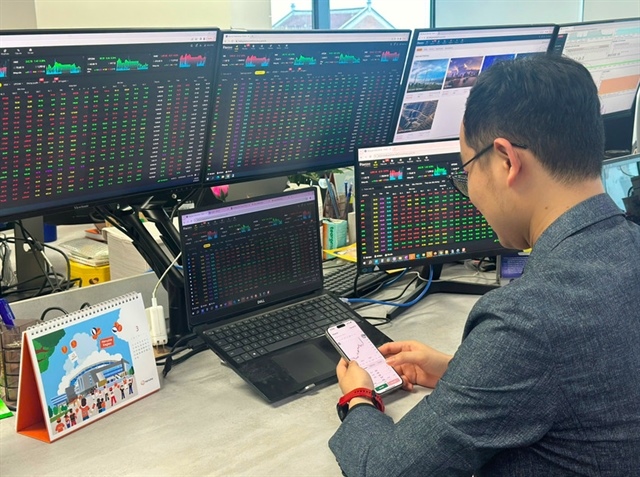Vietnam stocks to climb 12% by year-end on valuations, PXP says
Vietnam stocks to climb 12% by year-end on valuations, PXP says
Vietnam’s benchmark equity index is poised to rally 12 percent by year-end as the lowest valuations in almost eight months lure investors and inflation slows, according to PXP Vietnam Asset Management.
“We have been buying undervalued stocks in the past week or so,” said Kevin Snowball, whose PXP Vietnam Fund Ltd. (VNF) has climbed 39 percent in dollar terms this year, versus 13 percent for the nation’s VN Index, data compiled by Bloomberg show.
The benchmark gauge will probably advance to about 530 by December, exceeding this year’s closing peak of 527.97 on June 7, according to Snowball, the chief executive officer at PXP. The gauge dropped 3.9 percent last month to 472.70, leaving it valued at 9.9 times projected 12-month earnings, the lowest level on a weekly basis since the start of January.
Inflation in the Southeast Asian country will probably slow through year-end after reaching a 15-month high of 7.5 percent in August, Snowball said in a phone interview from Ho Chi Minh City. The $42 billion stock market retreated last month as speculation of reduced Federal Reserve stimulus and unrest in the Middle East spurred capital outflows from developing countries. Foreign investors sold $37 million of Vietnam shares in August, data compiled by Bloomberg show.
The central bank cut interest rates in May for the eighth time since the start of 2012 and the government started an asset management company in July to buy bad debt from banks. Vietnam lenders expect inflation to slow to 6.77 percent for the year, according to a survey by the central bank last month.
The VN Index’s forward price-earnings multiple is about 10 percent below its five-year average, according to data compiled by Bloomberg.
“Investors taking risk off is making all markets cheaper,” said Snowball, whose fund holds shares including Hoa Phat Group, Vietnam Dairy Products JSC and FPT Corp. Vietnam stocks “will finish this year significantly higher.”
bloomberg


























